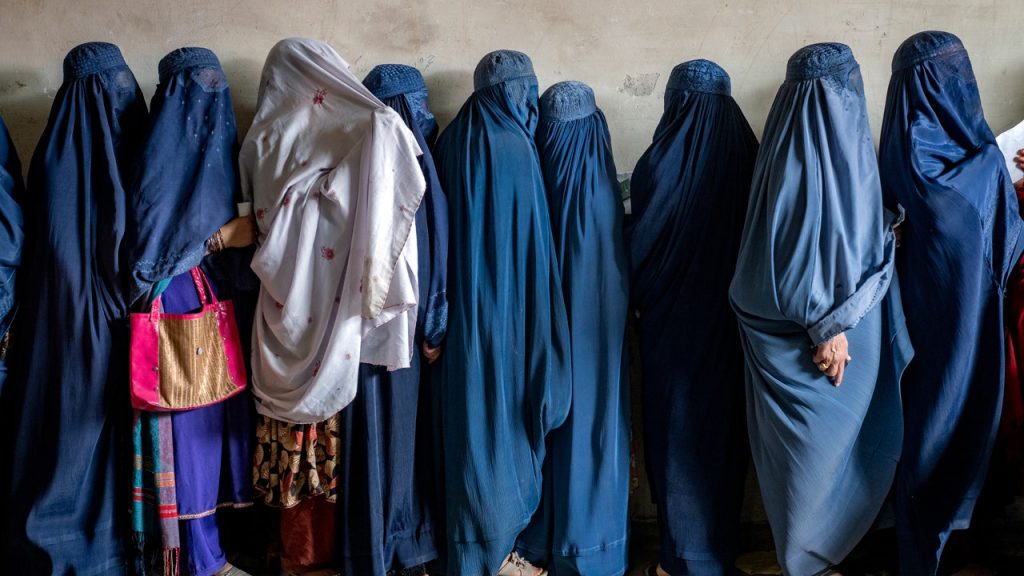The Taliban has faced criticism from the United Nations over new vice and virtue laws in Afghanistan that ban women from baring their faces and speaking in public. Roza Otunbayeva of the U.N. mission in Afghanistan expressed concern over the increased restrictions on women and girls, with even the sound of a female voice outside the home being deemed a moral violation. The Taliban’s main spokesman, Zabihullah Mujahid, justified the laws as being in line with Islamic Sharia law and warned against arrogance from those unfamiliar with these values, particularly non-Muslims.
The Taliban government issued the first set of laws aimed at preventing vice and promoting virtue in Afghanistan, including requirements for women to conceal their faces, bodies, and voices outside the home, as well as a ban on images of living beings. Otunbayeva criticized the laws, stating that the Afghan people deserve better than being threatened or jailed for minor infractions such as being late for prayers, glancing at the opposite sex, or possessing a photo of a loved one. Mujahid responded to the U.N.’s concerns by emphasizing the Taliban’s commitment to upholding and enforcing Islamic Sharia law, regardless of objections or reservations from various parties.
The Taliban’s stance on upholding Islamic values through these new laws has sparked debate and controversy, with the U.N. and other critics raising concerns about the impact on women’s rights and freedoms in Afghanistan. Otunbayeva described the laws as distressing and extending already intolerable restrictions on women and girls, while Mujahid defended them as necessary to maintain Islamic values and prevent moral violations. The issue highlights the cultural and religious clashes facing Afghanistan as the Taliban seeks to implement its strict interpretation of Sharia law.
Despite objections from the U.N. and other parties, the Taliban remains firm in its commitment to enforcing the new vice and virtue laws in Afghanistan. Mujahid emphasized the importance of understanding and respecting Islamic values within the context of Sharia law, rejecting criticisms as arrogant and unwarranted. The implementation of these laws has reignited concerns about the treatment of women and their rights under Taliban rule, raising questions about the future of gender equality and freedoms in the country.
As Afghanistan grapples with the aftermath of decades of war and a worsening humanitarian crisis, the imposition of strict vice and virtue laws by the Taliban has further complicated the situation. Otunbayeva’s criticism of the laws reflects broader international concerns about the impact on women’s rights and freedoms, while Mujahid’s defense reaffirms the Taliban’s commitment to their interpretation of Islamic values. The controversy surrounding these laws underscores the challenges facing Afghanistan in balancing religious traditions with modern principles of equality and human rights.


